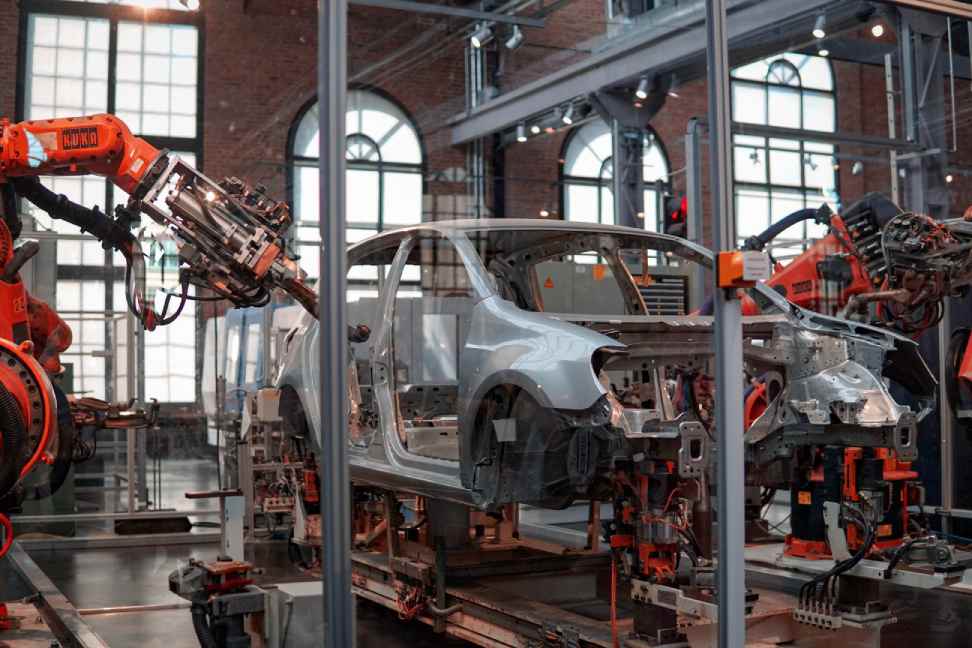The rhythmic hum of factories, the intricate dance of robots, and the whirring of engines – the industrial machinery and components sector forms the backbone of global manufacturing. But beyond the physical infrastructure, lies a thriving ecosystem of careers catering to diverse skillsets and aspirations. So, if you’re wondering “How many jobs are available in industrial machinery/components?,” you’re about to embark on a fascinating exploration.
Unveiling the Numbers Landscape:
While pinpointing an exact figure is challenging due to industry definitions and data variations, let’s paint a broad picture:
- Global Perspective: The International Trade Centre (ITC) estimates that the global machinery and equipment industry employs over 41 million people directly. This vast figure highlights the sector’s significance in global employment.
- US Focus: As of 2022, the US Bureau of Labor Statistics (BLS) reports over 1.8 million individuals employed in the “machinery manufacturing” industry. This translates to roughly 11% of the US manufacturing workforce, signifying a sizeable segment.
- Drilling Deeper: The BLS further provides specific job titles and projected growth rates. For example, mechanical engineers in this sector hold over 328,000 jobs with an expected 5% growth by 2031, while industrial machinery mechanics account for 222,000 jobs with a projected 4% growth.
Beyond Numbers: A World of Diverse Roles:
Understanding the landscape goes beyond mere numbers. The industrial machinery/components sector offers a spectrum of roles, each contributing to the bigger picture:
- Design and Engineering: Mechanical engineers, design engineers, and electrical engineers translate ideas into blueprints and functional prototypes.
- Manufacturing and Production: Machinists, welders, assembly line workers, and quality control inspectors bring designs to life on the factory floor.
- Sales and Marketing: Sales engineers, technical specialists, and marketing professionals connect with customers, understand their needs, and promote products.
- Installation and Maintenance: Field service technicians, maintenance engineers, and repair specialists ensure smooth operation and troubleshoot potential issues.
- Data Analysis and Automation: Automation specialists, data analysts, and robotics engineers leverage technology to optimize processes and enhance efficiency.
This diverse landscape caters to various interests, educational backgrounds, and skillsets. Whether you excel in hands-on work, enjoy intricate design challenges, or possess analytical prowess, there’s a potential path waiting to be explored.
Charting Your Course:
Navigating this diverse landscape requires strategic planning:
- Self-Discovery: Reflect on your interests, skills, and desired work environment. Do you thrive in collaborative settings, enjoy problem-solving, or have a keen eye for detail? Aligning your strengths with specific roles is crucial for long-term fulfillment.
- Research and Explore: Dive into specific roles, understand their educational requirements, and explore career paths. Industry websites, professional organizations, and online resources offer valuable insights.
- Develop Your Skillset: Continuously hone your skills, whether through academic programs, vocational training, or online courses. Staying relevant in this evolving field is key to success.
- Network and Seek Mentorship: Connect with professionals in the industry, gain firsthand experiences, and learn from their guidance. Attending industry events, joining professional networks, and seeking mentorship can open doors.
- Tailor Your Resume and Cover Letter: Highlight your relevant skills and experiences, showcasing how you can contribute to a specific role and company.
Remember: The industrial machinery/components sector encompasses various companies, each with its unique culture, environment, and growth opportunities. Explore thoroughly to find the perfect fit for your aspirations.
Embracing the Future: A Dynamic Landscape:
The industry is undergoing significant transformations, driven by:
- Automation and Robotics: While potentially displacing some roles, they create new opportunities in areas like programming, maintenance, and data analysis.
- Industry 4.0: Embracing digitalization, connectivity, and artificial intelligence will reshape processes and demand tech-savvy individuals.
- Sustainability Focus: Companies are increasingly prioritizing eco-friendly solutions, creating demand for expertise in sustainable materials and energy-efficient technologies.
Adapting to these changes and developing relevant skills will position you for success in the evolving landscape of industrial machinery/components.
Beyond the Numbers: A Rewarding Career Path
Competitive Salaries and Benefits: Skilled professionals in this sector enjoy competitive salaries, benefits packages, and potential for career advancement, contributing to financial security and stability.
- Job Security: The essential nature of the industry contributes to a relatively stable job market, offering long-term career prospects.
- Global Reach and Impact: Many roles offer opportunities to work on international projects, collaborate with diverse teams, and contribute to global technological advancements.
However, be mindful of potential challenges:
- Physical Demands: Certain roles require manual labor, working in industrial environments, or exposure to potential hazards, demanding physical resilience and adherence to safety protocols.
- Travel and Unpredictable Schedules: Some positions involve field work, travel, or shift work, requiring flexibility and adaptability.
- Continuous Learning: Keeping up with technological advancements and industry trends necessitates a commitment to ongoing learning and professional development.
Remember, a career path is a personal decision. Consider your values, desired work-life balance, and passion for contributing to technological innovation and industrial progress.
Embrace the opportunities, navigate the challenges, and align your aspirations with the evolving needs of the industrial machinery/components sector. This path can lead to a fulfilling and impactful career at the forefront of building the future.
Bonus Tip: Consider volunteering or interning in your chosen field to gain hands-on experience, test your interest, and network with professionals before diving into a full-time career.
Remember, the journey to find your ideal career path is unique. Take your time, explore your options thoroughly, and trust your instincts to find the path that resonates with your heart and mind.
Read Also:
- Is Restaurants A Good Career Path?
- How Many Jobs Are Available In Edp Services?
- How Many Jobs Are Available In Consumer Services?
- How Many Jobs Are Available In Consumer Durables?

